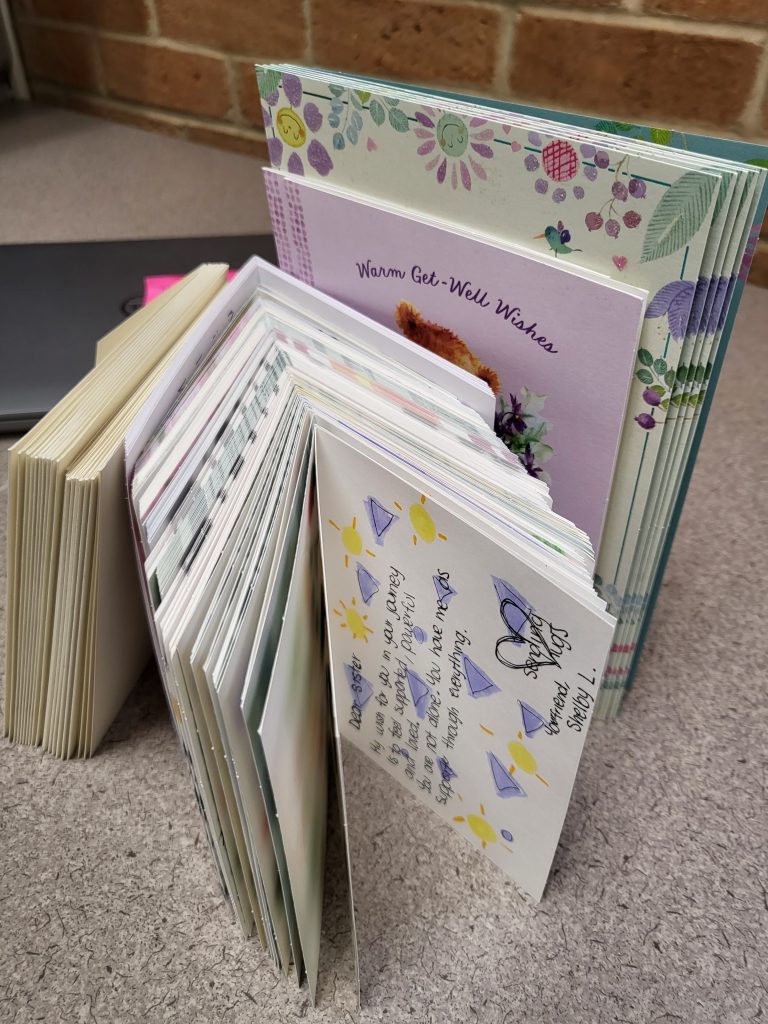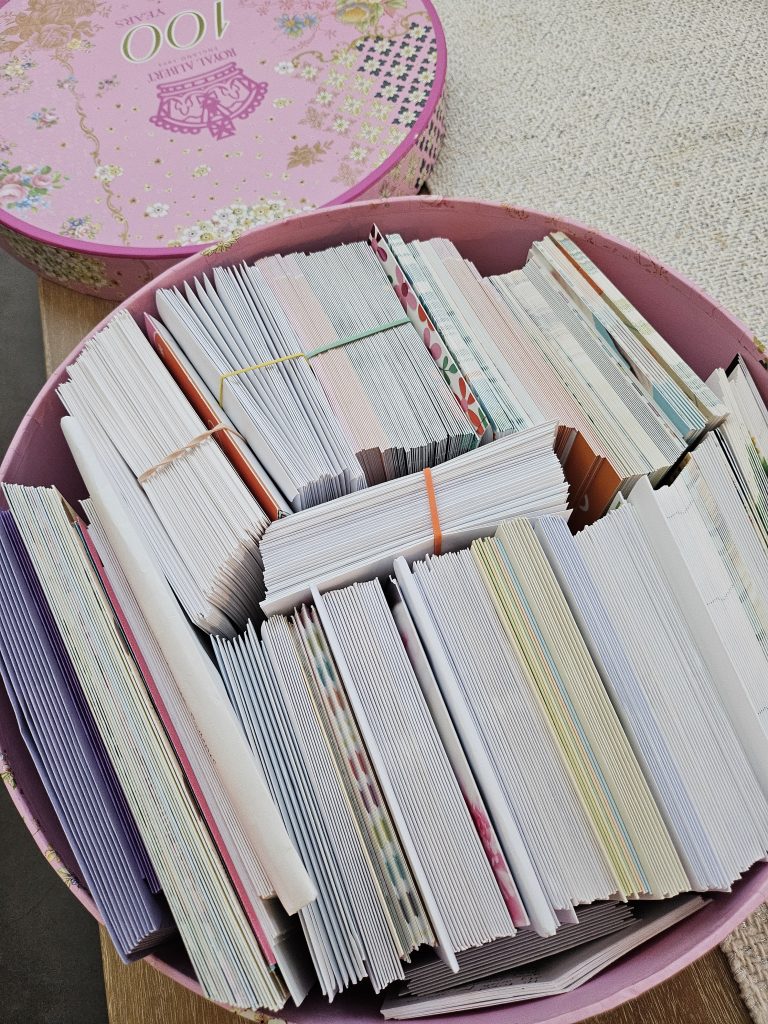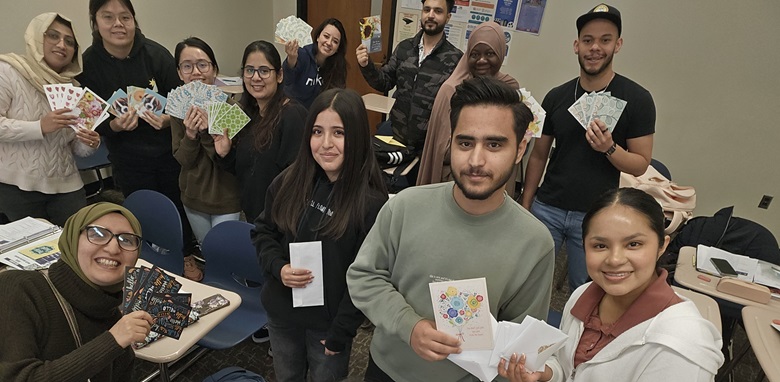One thousand.
That’s how many handwritten cards Dallas College professor Minjung Park dropped off at the National Breast Cancer Foundation in Frisco earlier this month. The cards, which provide love and support for patients diagnosed with breast cancer, were written by Dr. Park and her students in English for Speakers of Other Languages (ESOL) classes for Breast Cancer Awareness Month in October.
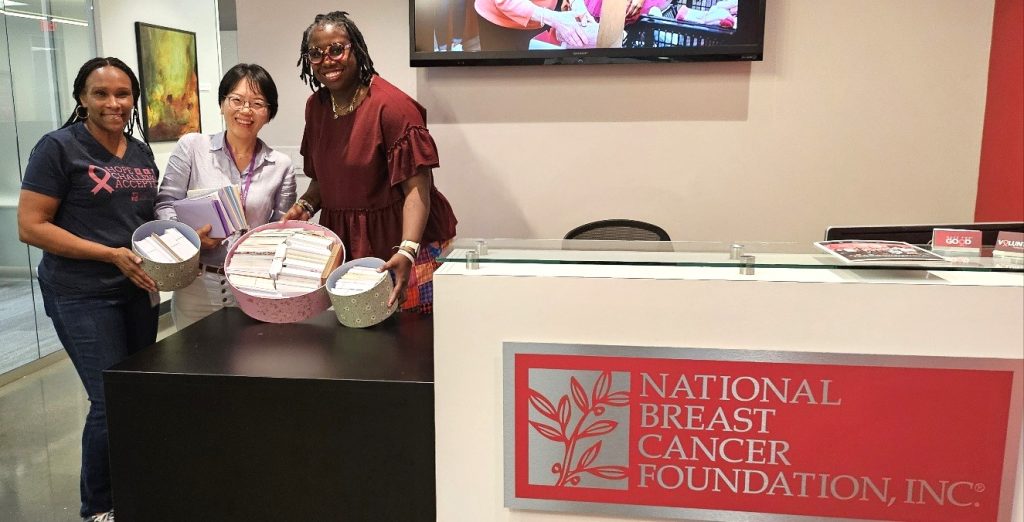
It started off as a personal community service project for Dr. Park, a breast cancer survivor herself. She eventually found a way to incorporate it into her class as an optional activity.
“I thought that card writing would empower my students to form a new identity as valuable members of the community,” said Dr. Park, who recently celebrated her 10th anniversary as an ESOL faculty member at Dallas College.
“For the past 10 years, I’ve heard students say to me, ‘Teacher, I used to be a doctor in Belarus, but here I feel like a nobody.’ That feeling weighed heavily on them. All these negative identities were formed either through their perceptions or society’s perceptions. I really wanted to change that. I wanted to empower them to see themselves differently — not as deficient language learners or second-class citizens or nonmembers of the community, but as full members of the community.”
Feeling Inspired
Dr. Park went on to say that she also felt her students should write for an audience greater than one. In classroom settings, students usually write just for the teacher. In this setting, they had a real-life purpose behind their words.
The students’ feedback was overwhelmingly positive, too. Many students had friends or loved ones who had gone through various cancer diagnoses.
“I could feel it when they were writing in class,” Dr. Park said. “Their faces would bloom like flowers, feeling like they were doing something really important.”
Dr. Park adjusted the card writing task based on the class. In her lower-level classes, she would have students copy messages off templates she had created. In her upper-level classes, students were more equipped to write messages on their own. Regardless of students’ language proficiency, Dr. Park’s classes always review the guidelines provided by the NBCF. They discuss what is appropriate to say and what is not because these messages are very impactful on patients.
At the end of the day, it served as an impactful assignment that many students eagerly participated in. Dr. Park personally wrote 350 cards, and 65 ESOL students helped write 650 cards over the past two semesters.
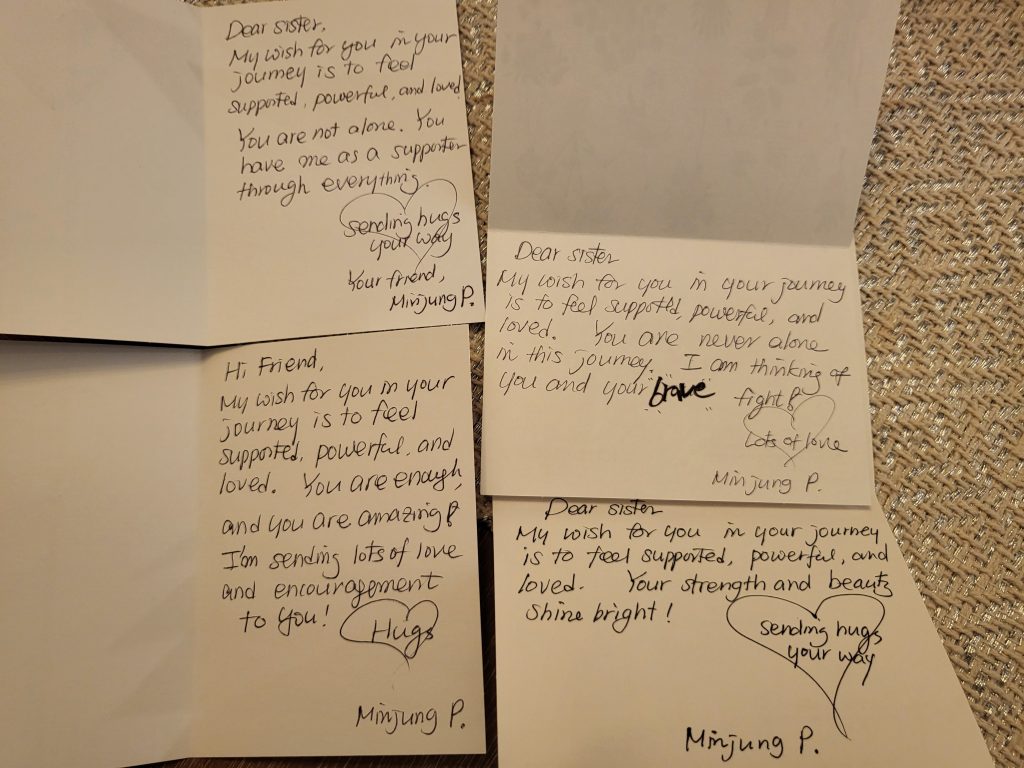
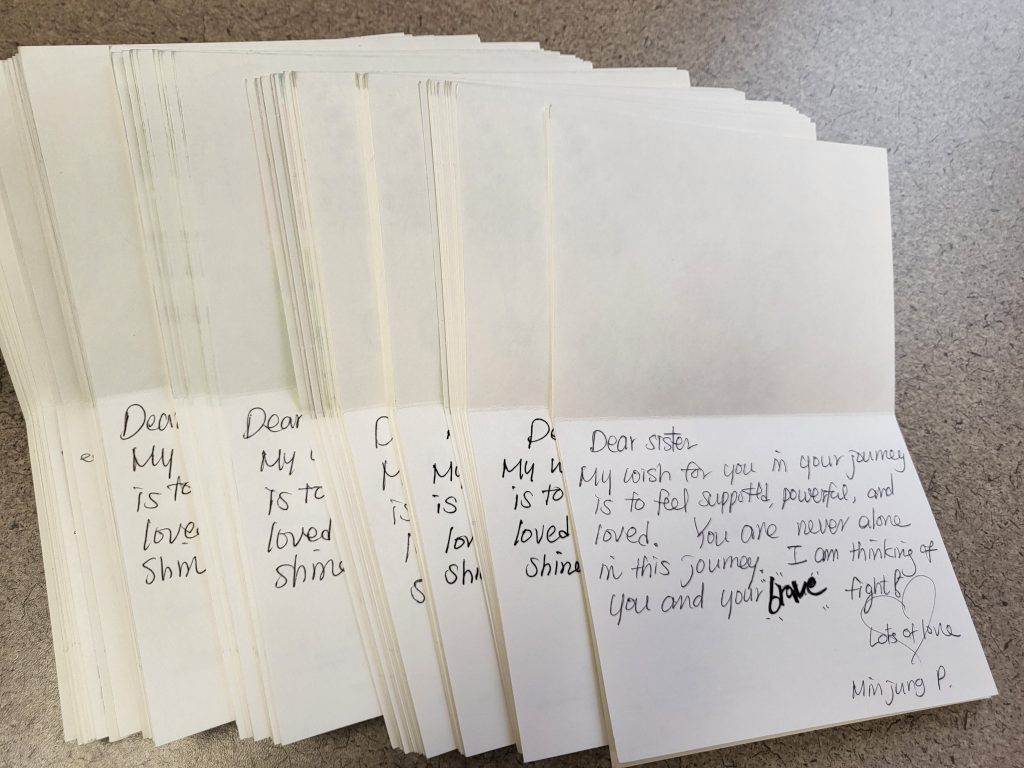
HOPE Kits
The National Breast Cancer Foundation (NBCF) will use the cards in HOPE Kits that are sent to patients across the nation. The NBCF describes HOPE Kits on its website as “a tangible expression of hope, providing comfort and encouragement to women undergoing breast cancer treatment.” Along with letters, other items included range from fuzzy socks to tumblers to inspirational bracelets.
This collaboration between Dallas College’s ESOL program and NBCF will continue going forward as the program. Dr. Park hopes more students and faculty members implement this initiative into their classes as 1,000 cards could be just the starting point.
She mentioned a number of writing and health professional programs that could join as well as the visual art programs in the School of Creative Arts, Entertainment and Design.
“We have so many talented art major students,” she said. “Words are powerful. With arts added, they are even more powerful and therapeutic.”
